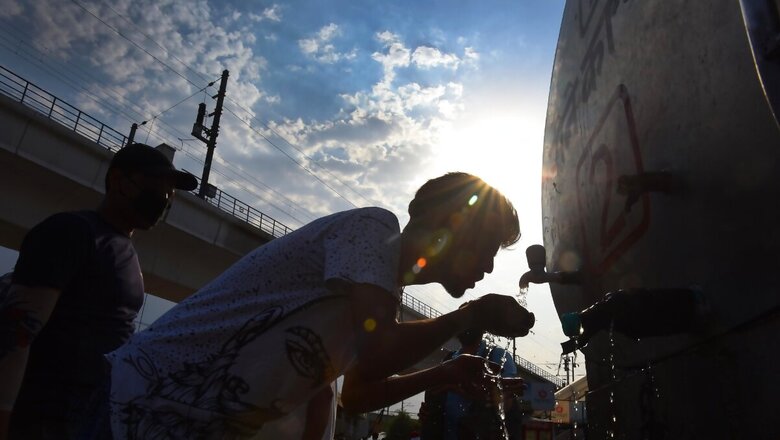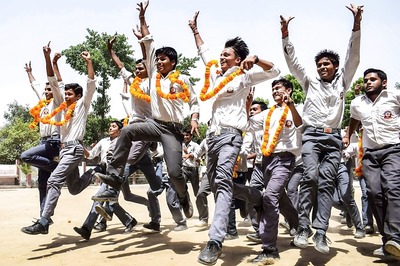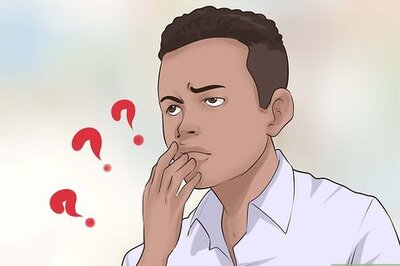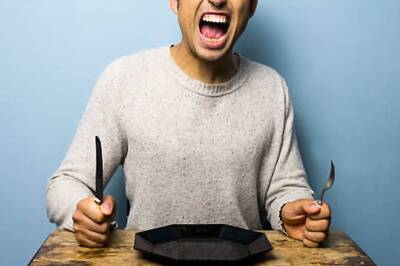
views
As more than 90 per cent of India’s total area is in the “extremely cautious” or “danger” range of heatwaves, people are opting for different ways to keep their cool.
Fearing heat strokes and heat exhaustion, people may end up drinking extremely cold water, switching on the AC on a hot body, or taking cold showers, etc.
However, there are some practices that may do more harm than good. News18.com declutters myths about ways to cool down in extreme summer.
By avoiding these common mistakes and taking proper precautions, one can stay healthy during sweltering summers or ongoing heatwaves.
Cold showers not advisable for those with weak immune systems
Dr Altaf Patel, director of medicine, at Jaslok Hospital & Research Centre Mumbai, quoted a study published in the British Journal of Sports Medicine that said taking a cold shower makes one “feel awake”.
“It also raises blood pressure, heart rate, and respiration rate. It can also boost the body’s metabolism, and if used for an extended period of time, you may notice some weight reduction,” he said.
Those who take cold showers on a regular basis have a healthy circulatory system and are less prone to getting sick because cold water activates the body’s immune system, said the doctor.
“A cold-water shower can benefit the body in as little as 30 seconds to 2 minutes,” Patel said.
However, he warned that “cold water should be used with caution by those with weakened immune systems or heart problems”.
A cold shower relieves heat-up activity and lowers inflammation in the body. Cold water causes blood vessels to contract and reduces swelling, which causes pain, while cold water itself relieves pain by slowing transmission and nerve conduction.
Dr Anurag Aggarwal from Fortis Escorts Hospital, Faridabad, said that cold showers may temporarily cause disruption of heat dissipation by causing venous contraction in the skin, making you feel colder for a short while.
Drinking chilled water: Good and bad
Patel from Jaslok Hospital explained that drinking cold water is very good during exercise to keep the body from overheating and to help maintain a lower body temperature.
Experts said that cold water stimulates the circulatory system and promotes blood flow to important organs. It not only helps to dehydrate you during exercise, but it also helps to remove toxins from the body and burns more calories. It also aids in maintaining alertness.
Cold water reduces blood flow to the skin while increasing it to important organs.
Experts said that drinking cold water has other benefits such as thickening of the mucosa, which causes respiratory issues, headaches, tooth sensitivity discomfort, and slowness of stomach emptying.
“If you have varicose veins, cold water may aid you by shrinking the veins and allowing the valves to function more properly,” Patel said.
The idea is to hydrate, be it with hot water or cold or at room temperature. “Whatever your choice, cold or hot or room temperature water. Take what you like best but hydrate yourself these days to prevent heat exhaustion and heat stroke. Whatever your preferences, drink water adequately,” he advised.
Dr Aggarwal from Fortis though said that drinking cold water has “no effect on veins”.
However, Dr Pankaj Verma, senior consultant at internal medicine at Narayana Hospital, Gurugram, advised avoiding extremely cold water.
He explained that drinking very cold water can cause the blood vessels in your stomach to contract, which can reduce blood flow and slow down digestion. “This can lead to stomach cramps, bloating, and indigestion. Instead, drink water at room temperature or slightly cool water.”
Not wise to cool down immediately after coming from outside
According to Dr Anurag Aggarwal, consultant (internal medicine), Fortis Escorts Hospital, Faridabad, “It is advisable to cool the body gradually but not abruptly to avoid thermal shock. One should avoid having a very cold shower immediately after exposure to intense heat as it only cools down the surface body temperature, confusing the thermal receptors in the skin which carry the signals to the brain, making the brain falsely think its cold and thus prevents body’s internal mechanism from dissipating heat by sweating.”
Dr Verma also suggested avoiding taking a cold shower or jumping into a pool right away, as this can cause the body to go into “shock”.
Instead, he advised taking a lukewarm shower, using a fan, or sitting in an air-conditioned room for a few minutes to allow the body to adjust.
Dr Sunil Jain, head of the department of emergency medical services at Jaslok Hospital & Research Centre, Mumbai, explained that it is “typically not recommended to cool down your body soon after coming out of the heat since the heatwave causes abrupt and drastic fluctuations in your body temperature”.
It can be dangerous and lethal, leading to illnesses such as heat exhaustion and heatstroke.
So, in general, experts said that the body has self-regulation where it tries to cool itself by creating more perspiration and boosting blood flow to the skin. So, if you rapidly cool down your body, your blood vessels will contract very quickly, causing your blood pressure to decrease, and perhaps leading to dizziness.
Jain said that one may also experience “a fainting episode if your blood pressure is low”.
Also, experts advised limiting direct sunlight exposure to the exposed body region and wearing loose-fitting light-coloured clothing.
Avoid overexertion
Doctors suggest that during a heatwave, it’s important to avoid overexerting yourself, especially during the hottest part of the day.
“Avoid strenuous activities like running or playing sports, and instead, exercise in the early morning or late evening when it’s cooler,” Verma said.
Read all the Latest India News here

















Comments
0 comment